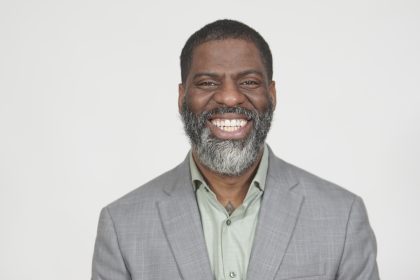Attending a HBCU based in Atlanta is more than a cultural experience — it’s a smart financial move. With a legacy of excellence, empowerment and economic opportunity, historically Black colleges and universities in Atlanta are uniquely positioned to offer value, networks and real-world returns for students and their families. Choosing one of these institutions can lay a solid foundation not only for personal success but for long-term financial growth.
In a city known as a Black economic and cultural hub, Atlanta’s HBCUs—Spelman College, Morehouse College, Clark Atlanta University and Morris Brown College—aren’t just schools. They’re springboards into thriving industries, community wealth and generational progress.
Lower student debt
The cost of college can define a student’s post-graduation freedom. HBCUs based in Atlanta often offer lower tuition and fees compared to private non-HBCUs. With scholarship programs specifically designed for Black students and first-generation college attendees, these schools help reduce financial barriers from day one.
Students at Atlanta HBCUs typically graduate with less student loan debt. This gives them a financial edge when entering the workforce, opening doors for investments, savings and early homeownership. Fewer loans mean more room to breathe—and dream—after graduation.
Strong alumni networks
Economic opportunity doesn’t stop at graduation. Atlanta’s HBCUs boast tight-knit, powerful alumni networks that open doors across multiple industries, especially in the Southeast. From film and television to business, health care and tech, graduates often return to mentor, hire and invest in students.
Morehouse alumni include CEOs, politicians and cultural influencers who prioritize building up the next generation. These relationships create direct pipelines to high-paying opportunities—connections that money can’t buy but that students benefit from economically for decades.
Access to industry internships
Atlanta isn’t just a college town—it’s a city with a booming Black entrepreneurial scene, corporate headquarters and major industries. Students attending a HBCU here often land internships and part-time jobs with companies like Coca-Cola, Delta Air Lines, Warner Bros. Discovery and Emory Health Care.
These early experiences can turn into full-time offers, with competitive salaries and benefits. Having a respected HBCU on your résumé in Atlanta means something to employers. These schools are embedded in the city’s business landscape and are often preferred recruiting grounds.
Support for entrepreneurs
HBCUs in Atlanta nurture a spirit of entrepreneurship. Clark Atlanta’s motto, “Find a way or make one,” isn’t just a slogan—it’s a financial strategy. Students are encouraged to launch ventures, apply for startup competitions and pitch ideas within supportive communities.
Many students graduate with business plans already in motion and mentorship from local founders. Being in Atlanta means they’re also part of the city’s growing ecosystem of Black-owned businesses, venture capitalists and innovation hubs.
This environment helps students monetize their talents early, whether through art, tech, music or consulting.
Financial literacy prioritized
At HBCUs in Atlanta, financial education isn’t an afterthought—it’s part of the mission. Workshops, peer programs and speaker series often focus on credit building, investing, budgeting and generational wealth. Students leave equipped to manage money and avoid common financial pitfalls.
That literacy translates to smarter decisions with real impact:
- Fewer overdraft fees
- Stronger credit scores
- Better loan terms
- Smarter use of financial aid
Being surrounded by peers and mentors who openly discuss financial strategies builds confidence and long-term economic awareness.
Community investments
Atlanta-based HBCUs regularly receive financial backing from philanthropic organizations and corporations aiming to close racial wealth gaps. These investments create scholarship funds, housing support and technology access that can directly reduce costs for students.
In recent years, companies like Apple, Microsoft and Bank of America have invested millions into these schools. That means students benefit from state-of-the-art labs, career coaching and subsidized learning resources.
These partnerships aren’t just symbolic—they translate to real financial savings and career elevation for the student body.
Atlanta’s affordability
When compared to cities like New York, Los Angeles or Washington D.C., Atlanta remains a relatively affordable place to live and study. While prices have risen in recent years, students attending HBCUs in Atlanta still find cost-effective housing, transportation and entertainment options.
Many students live off-campus in shared apartments or student-friendly communities, further cutting costs. Atlanta’s MARTA public transportation system and access to gig economy work (rideshare, delivery, freelancing) also allow students to earn extra money without owning a car.
These factors, combined with lower tuition and local scholarships, make attending a HBCU here a financially sound decision.
Beyond financial returns
Choosing an HBCU in Atlanta isn’t just about dollars and cents—it’s about belonging, support and legacy. It’s the power of walking across a campus where you’re seen and celebrated. It’s knowing your professors are invested in your growth, both academically and personally. And it’s sharing classrooms with future leaders who look like you.
These emotional benefits often translate into economic outcomes—confidence in interviews, readiness for professional settings and a community that pushes you to rise.
Building generational wealth
For Black students and families thinking strategically about the future, the economic reasons to attend a HBCU based in Atlanta are compelling. These schools aren’t just preparing students for jobs—they’re preparing them for wealth, influence and impact.
From lowering student debt and building business skills to expanding networks and increasing access to lucrative opportunities, Atlanta’s HBCUs are catalysts for transformation. They turn potential into power—and power into prosperity.
The return on investment from a HBCU in Atlanta isn’t just financial—it’s generational.
This story was created using AI technology.
















